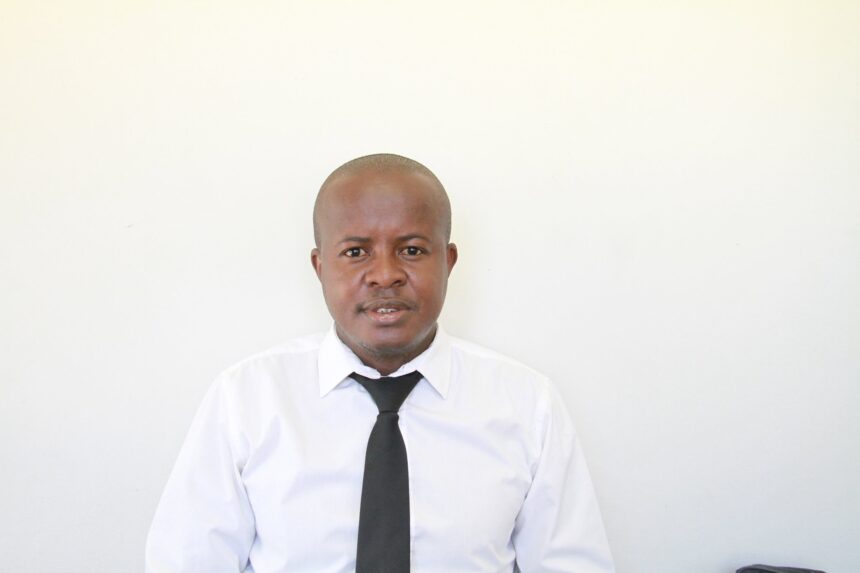It is heartbreaking and deeply unjust that in a democratic Namibia, students with disabilities continue to face enormous obstacles in their pursuit of a basic human right, access to education.
This is not a call for charity, nor is it a plea for special treatment. It is a demand for dignity, equality, and justice, values enshrined in both the Namibian Constitution and international commitments to which the government has bound itself.
Namibia ratified the United Nations Convention on the Rights of Persons with Disabilities (CRPD) on 4 December 2007, signalling to the global community its intention to uphold the rights of persons with disabilities. The CRPD is not a symbolic gesture; it is a legally binding commitment that obliges the Namibian government to ensure inclusive education, economic empowerment, and social protection for persons with disabilities. More than 15 years have passed since its ratification, yet the lived reality of disabled students in Namibia tells a different story, one of broken promises, systemic neglect, and institutional discrimination.
Article 24 of the CRPD guarantees the right to inclusive education at all levels. It mandates that persons with disabilities should have access to tertiary education, vocational training, and lifelong learning without discrimination and on an equal basis with others.
It further requires states to provide financial support, such as scholarships and study grants, to enable this access. Article 27 reinforces this obligation by focusing on the economic empowerment of persons with disabilities through access to meaningful employment. Article 28 calls for the provision of social protection programmes, including financial support for students with disabilities.
Despite these clear obligations, the Namibian government has consistently failed to meet its responsibilities. Many students with disabilities have registered at institutions such as the University of Namibia (Unam) and other higher education institutions with the understanding that the state would cover tuition fees and provide essential support.
Today, a significant number of these students are unable to graduate, access their transcripts, or move forward in their academic or professional journeys. These issues are not isolated but widespread, systemic, and deeply damaging.
Government officials have repeatedly made public commitments to support persons with disabilities, yet the implementation of these promises remains elusive. Students with disabilities continue to face outstanding tuition and hostel fees that the government initially pledged to cover. These unpaid fees are not abstract figures; they are tangible barriers to completing education and accessing opportunities that enable economic and social empowerment.
The impact of these failures extends far beyond financial hardship. Students with disabilities already contend with physical, social, and institutional barriers in environments that are often not designed to accommodate them. The added burden of unpaid fees and administrative neglect exacerbates their marginalisation. The Namibian government, by failing to honour its obligations, is not empowering these individuals but actively undermining their futures.
Namibia is bound by the CRPD under Article 144 of the Namibian Constitution, which states that international agreements form part of domestic law upon ratification. Furthermore, Article 10 of the Constitution guarantees equality and prohibits discrimination. Denying persons with disabilities the support necessary to access education is not only morally reprehensible but legally indefensible.
This ongoing neglect represents a profound violation of human rights. The refusal to fund education for students with disabilities, as mandated by Articles 24, 27, and 28 of the CRPD, perpetuates cycles of poverty and social exclusion. It fosters a generation of talented individuals who, despite their efforts and potential, are economically disempowered and socially marginalised. Institutions like the University of Namibia have made commendable efforts to promote inclusivity. The Disability Unit at Unam, along with dedicated staff, have worked diligently to foster a more accessible academic environment. However, these efforts are being undercut by the government’s inaction and failure to provide the necessary financial support. The rhetoric of inclusive education is rendered hollow when students are denied graduation due to debts they were never meant to incur.
This is not only a national disgrace but a matter of international concern. Namibia often portrays itself as a champion of human rights and constitutional democracy. Yet these accolades are meaningless when domestic realities contradict international commitments. The world must be made aware of the contradiction between Namibia’s image abroad and its treatment of persons with disabilities at home.
It is imperative for international organisations, human rights defenders, and disability advocacy groups to hold the Namibian government accountable. The rights of students with disabilities cannot be optional or conditional. They must be fulfilled in practice, not merely acknowledged in principle. The Namibian government must urgently rectify this breach. Commitments to the CRPD and constitutional provisions must translate into tangible support. The future of countless students depends on the immediate clearance of outstanding fees, the establishment of sustainable funding mechanisms, and the prioritisation of accessible education.
A nation that denies educational access to its disabled citizens is not only negligent, it is unjust. Justice demands action. The Namibian government must demonstrate that its commitment to inclusivity is more than a public relations strategy. The time for empty promises has passed.
If Namibia is to fulfil its constitutional and international obligations, it must begin by ensuring that all students with disabilities are able to complete their education and fully participate in national life. Education is not a privilege for a select few; it is a right for all.
Namibia must not be a nation for some. It must be a nation for all.
*Brian Ngutjinazo, is a final-year LLB student with a physical disability


